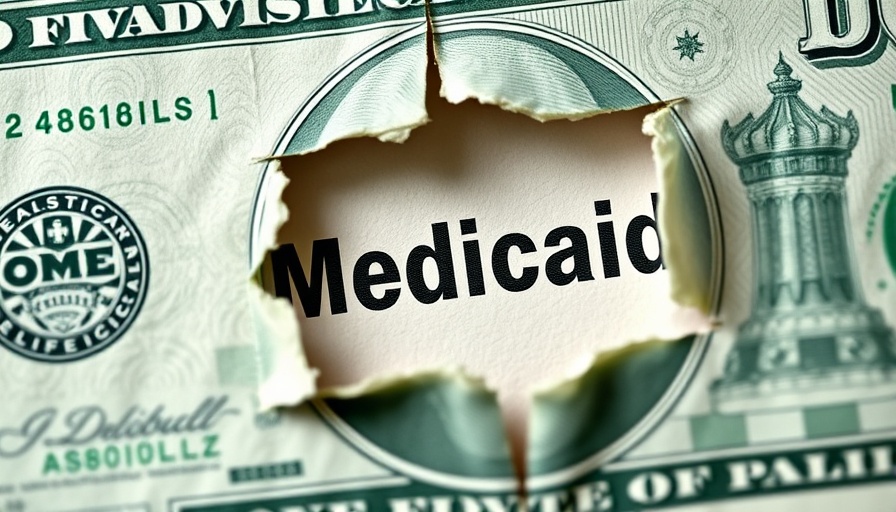
The Potential Ripple Effects of Medicaid Cuts
The looming possibility of Medicaid expansion cuts poses serious risks to both healthcare providers and patients. A recent report from the Urban Institute and Robert Wood Johnson Foundation highlights the dire consequences: an estimated $80 billion loss in healthcare spending is anticipated within just a year, alongside an alarming rise of almost $19 billion in uncompensated care costs by 2026.
Understanding the Financial Toll on Healthcare Providers
The stark reality is that hospitals will bear the brunt of these funding cuts, with projected revenue declines nearing $32 billion. This situation is particularly precarious for rural hospitals, which rely heavily on Medicaid funding to stay operational. As providers struggle to manage increased uncompensated care, we face the potential for widespread job losses and service closures.
Who Bears the Burden?
Under the potential cuts, the burden of uncompensated care will largely fall on providers. Hospitals and medical practices are expected to shoulder a staggering $19 billion in costs that will not be reimbursed by insurance. This funding gap is a substantial strain on they operational budgets, hindering their ability to provide essential services and threatening the overall healthcare ecosystem.
The Bigger Picture: Economic Implications
Beyond individual providers, the economic ripple effects could destabilize entire communities. Healthcare systems are often among the largest employers in rural areas. Should hospitals close or downsize, local economies could suffer significantly. This decline in jobs directly tied to healthcare might lead to increased poverty rates, reduced economic productivity, and compromised community health.
The Human Cost of Uncompensated Care
When we discuss uncompensated care, it’s vital to recognize the human stories intertwined with the financial statistics. Many patients, especially those in lower-income brackets and marginalized groups, could find themselves without access to crucial medical services. Hospitals may have to prioritize paying their bills over providing necessary treatments, leading to a healthcare system where only those with substantial means can receive adequate care.
What Lies Ahead? Future Predictions
As debates over Medicaid cuts continue in Congress, it’s uncertain how these proposed changes will ultimately unfold. Should they be enacted, the resultant impact won’t merely be economic; our healthcare landscape could forever shift, fundamentally altering access to care for millions of Americans. Legislators must consider both the economic implications and the human cost tied to these funding decisions.
In conclusion, while discussions about federal spending often focus on balance sheets, the real conversations must center on the lives affected. Understanding the dynamics of Medicaid funding and its far-reaching consequences is essential for ensuring a more equitable healthcare future.
 Add Row
Add Row  Add
Add 




 Add Row
Add Row  Add
Add 



Write A Comment